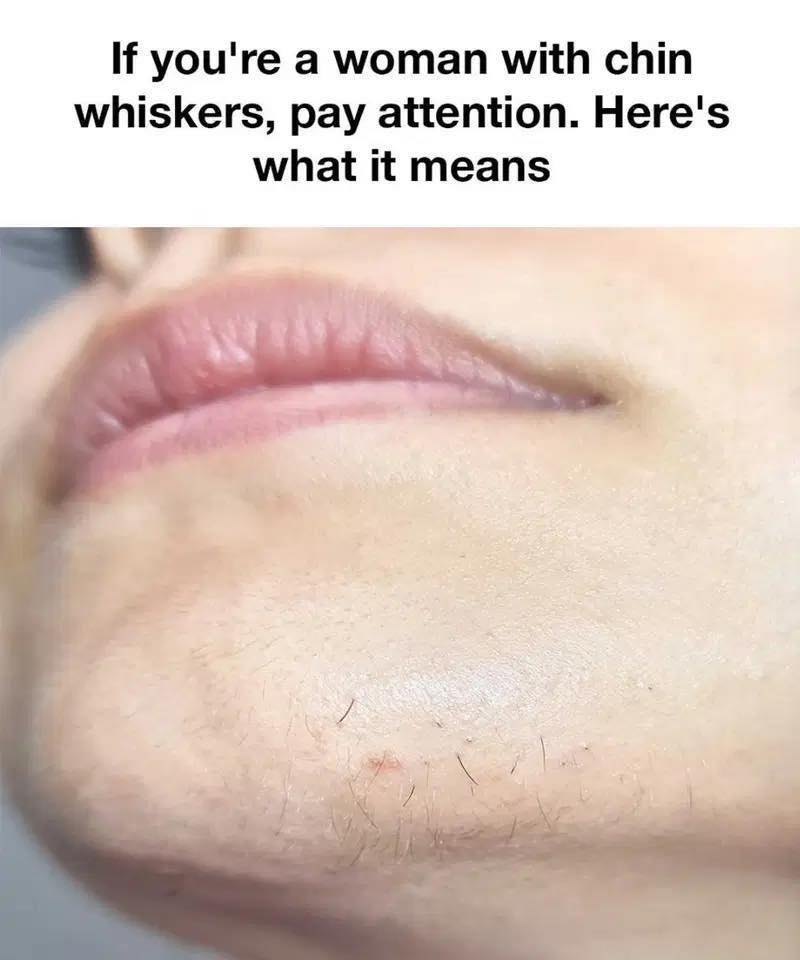You should consult your doctor if:
-
You notice sudden or rapid hair growth
-
The hair is dark, coarse, and thick
-
You also have symptoms like irregular periods, weight gain, or acne
-
There’s a family history of PCOS or endocrine issues
A doctor may run blood tests, hormone panels, or imaging to determine the root cause.
Ways to Manage Chin Hair
At-Home Hair Removal:
-
Tweezing or threading
-
Waxing
-
Depilatory creams
Long-Term Solutions:
-
Laser Hair Removal – Targets the follicle for permanent reduction.
-
Electrolysis – FDA-approved permanent solution.
-
Prescription creams – Like eflornithine (Vaniqa) to slow hair growth.
Always do a patch test or consult a dermatologist before starting treatments.
Natural Remedies (Use With Caution)
Some women try natural options like turmeric pastes or spearmint tea (which may lower androgens). While these may help, results are often subtle and vary.
Final Thoughts
A few chin whiskers are usually harmless — but when they appear suddenly, become excessive, or come with other hormonal symptoms, it’s best to speak with your doctor. Your body could be trying to tell you something important.
You deserve to feel confident and informed about your health, and that starts with paying attention to the little things — like chin hair.

